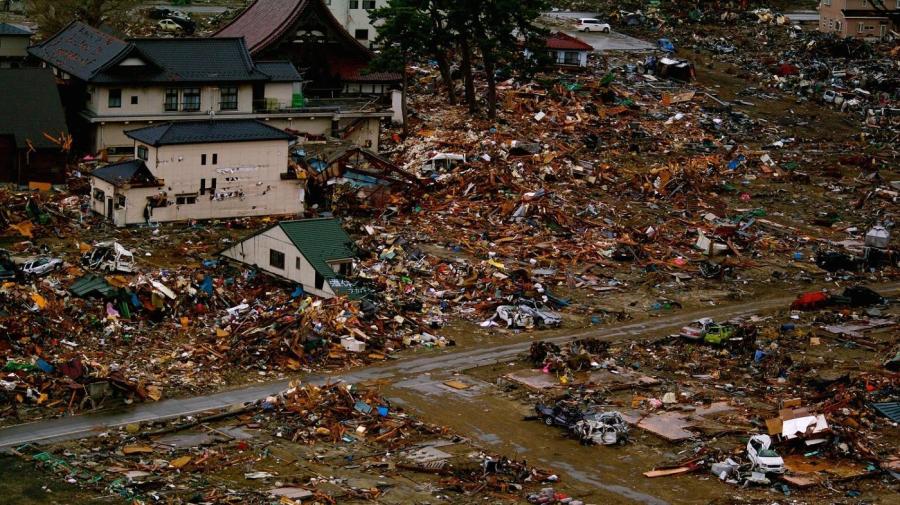How Do Tsunamis Affect People?

While an immediate effect of a tsunami is the destruction of life and property, tsunamis also create a health crisis. Not only do tsunamis wipe out buildings and carry many of the things in their path away, they leave behind a crippled infrastructure that makes it extremely difficult to provide basic services to the people who survived.
The destruction that a tsunami brings often overwhelms existing water and sanitation systems, as well as the ability of medical facilities to provide basic services. For those who survive the tsunami, getting clean drinking water, shelter, food and sanitary medical care is often quite a challenge.
As flood waters rise in the aftermath of the tsunami, food supplies and water can suffer from contamination, contributing greatly to the public health risk. As people have to live without shelter, they have increased vulnerability to heat, exposure to insects and other dangers in the environment.
While most of the people who die from tsunamis end up drowning, the trauma from serious injuries is also a concern. Head injuries and broken limbs are a simple fact of life as people get washed into trees, houses and other items that are too big for the waves to carry away. When the water starts to go down, the force of suction yanks debris into public areas, leading to a difficulty when it comes to ongoing services and viability of buildings.





